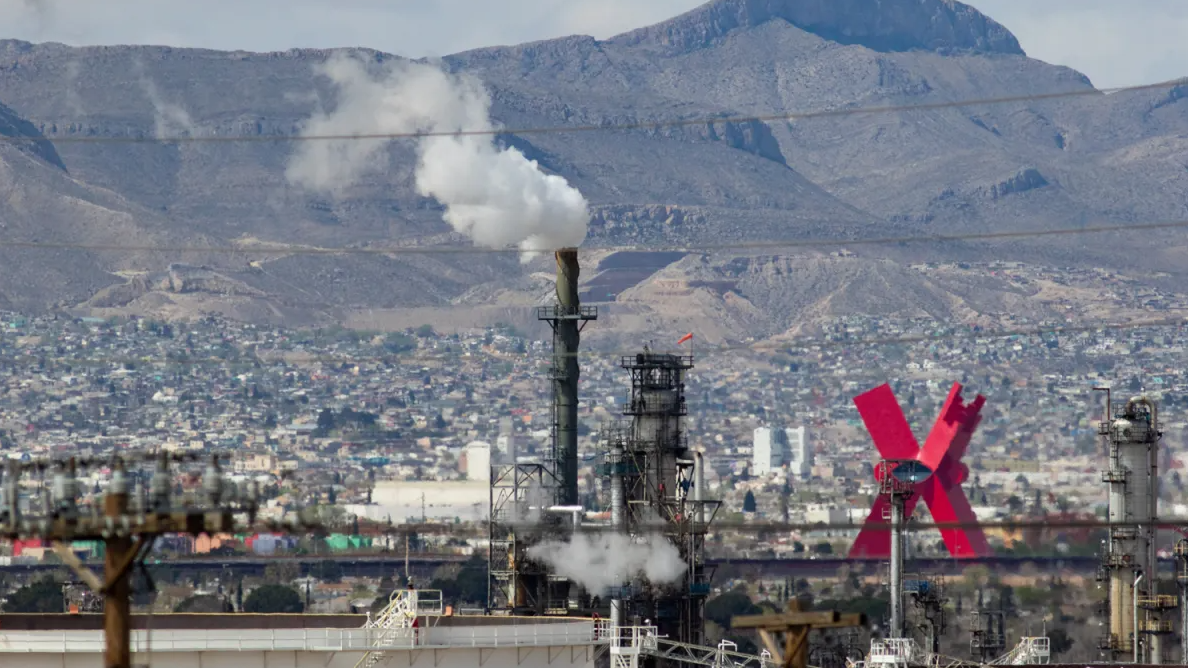Federal, state officials move to ease gas shortage in El Paso following refinery outage

by Diego Mendoza-Moyers, El Paso Matters
September 4, 2023
After a breakdown at Marathon Petroleum Corp.’s El Paso refinery cut off a major source of gasoline in El Paso and sent prices at the pump soaring in recent weeks, federal officials waived rules to boost the amount of gasoline coming into the area.
Prices have risen close to $4 per gallon and some gas stations in the city have been unable to get gasoline to sell in recent weeks following “unplanned outages” at the local refinery off of Trowbridge, as well as at the Alon refinery in Big Spring, Texas, according to the Environmental Protection Agency.
In a letter to state officials who requested the waiver, the EPA earlier this week said it “determined that an ‘extreme and unusual fuel supply circumstance’ exists that will prevent the distribution of an adequate supply of compliant gasoline to consumers.”
To boost gas supplies in El Paso County, the EPA waived a requirement that gasoline here must have a lower so-called “RVP” – or vapor pressure – than the national standard. Burning gasoline with a lower vapor pressure leads to less ground-level ozone pollution, but gasoline with a higher vapor pressure is more abundant, said Patrick De Haan, head of petroleum analysis for GasBuddy, a gas price-tracking site.
“Stations couldn't find or were having difficulty finding lower (vapor pressure) gasoline because the refineries that serve it were having issues,” De Haan said. “When a refinery goes down for a critical area, that’s one of the first things that bureaucrats can use to improve the supply situation: temporarily waive some of the requirements that make it more difficult for refineries to supply gas into a market.”
The waiver allows gas stations to sell higher vapor pressure gasoline that they would typically sell over winter, but just a couple of weeks earlier than normal this year. It's not clear how much impact the waiver will have on the price of gas in El Paso.

Marathon declined to answer questions about the outage at its refinery, which supplies much of the gasoline for the El Paso area. “We typically do not disclose details about our refinery operations,” a spokesperson said.
Delek US, owner of the refinery in Big Spring, said it is “not experiencing unplanned downtime at the Big Spring Refinery.”
“The refinery is operating on plan,” a spokesperson said.
The outages at the two refineries “could not reasonably have been foreseen and it is not attributable to a lack of prudent planning on the part of suppliers of fuel to El Paso County,” the EPA said.
El Paso County has a relatively strict gasoline standard during summer in order to limit ozone pollution, which can cause respiratory problems and exacerbate asthma. Heat and sunlight react with pollutants like NOx to form ozone – so gasoline standards are less strict in the fall and winter than during summertime.
“When you're burning things and it's hot, low-level ozone can form and that can be unhealthy,” De Haan said.
The early switch to more volatile fuel could slightly increase ozone levels in El Paso, but it’s “probably a very marginal increase in air pollution and emissions,” De Haan said.
While the fuel standard waiver will boost gasoline supplies in El Paso, it’s not clear how the move will affect prices at the pump in the near-term. Other factors – such as refinery outages elsewhere or oil production levels in other countries such as Saudi Arabia and Russia – could affect gas prices as much or more than the EPA’s waiver.
“It's very hard to parse out, “Oh, the impact (of the EPA waiver) is 7 cents,’ because there are so many issues,” De Haan said.
Gas prices averaged $3.93 in El Paso on Thursday, an increase of about 50 cents per gallon since late July. The average price for a gallon of gas in Las Cruces was $3.76 on Thursday, an increase of 32 cents since last month.
“Prices won't necessarily go down … because these refineries still aren’t producing as much gasoline,” De Haan said. “The waivers improve supply. They don't necessarily improve prices. Once these refiners get back online, then the prices will start to improve and they'll probably go down as much as they went up.”
He said refinery outages are “extremely common” and typically last anywhere from 1 to 6 weeks.
“But it's even more common with the extreme temperatures that El Paso has seen this summer,” De Haan said. “Being outside exposed to hot air generally can be problematic. You can't really air-condition a refinery.”
This article first appeared on El Paso Matters and is republished here under a Creative Commons license.![]()
